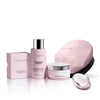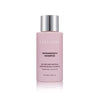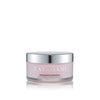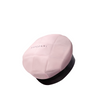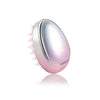
7 Vitamin Deficiencies That Can Cause Hair Loss
Hair loss can be a real bummer, especially when it strikes unexpectedly. It can be caused by several factors, including genetics, stress, hormonal changes, and diet. But did you know that some vitamin deficiencies can also lead to hair loss? That's right! Your hair might be shouting "Feed me!" when it comes to certain vitamins. In this article, we'll delve into seven vitamins that can cause hair loss and how you can keep your tresses healthy and strong.
Hair Loss 101: Understanding the Different Types
Before we dive into the vitamins, let's first understand the different types of hair loss. There are several types of hair loss, including androgenetic alopecia (male or female pattern baldness), alopecia areata (an autoimmune disorder that causes hair loss), telogen effluvium (temporary hair loss due to a change in the hair growth cycle), and trichotillomania (compulsive hair pulling).
If you're experiencing hair loss, it's essential to identify the type of hair loss you have. This will help you determine the root cause and find the right treatment. Some common signs of hair loss include a receding hairline, thinning hair, and excessive shedding. If you're unsure, consult a dermatologist or trichologist for a proper diagnosis.

Signs and Symptoms of Vitamin Deficiencies
A lack of essential vitamins can manifest in many ways and impact various aspects of our health. Besides fatigue, which is one of the most common signs of a vitamin deficiency, other symptoms include muscle weakness, slow healing, and frequent infections. Our skin can also be affected and present with dry or itchy skin. People with a vitamin deficiency may also experience changes in their hair, such as dryness or brittleness, or in their nails, such as softness or ridges. Another symptom is vision problems, such as night blindness, which can be caused by a lack of vitamin A. Additionally, a weakened immune system, mood changes, and a decreased appetite can also be signs of a vitamin deficiency.
Vitamin deficiencies can also affect your mental health, leading to mood changes, irritability, depression, and even memory loss. If you are feeling overwhelmed, anxious or have trouble concentrating, it could be a sign of a vitamin deficiency. People with vitamin B12 or folate deficiencies may experience difficulty walking or balancing, and nerve damage can cause tingling or numbness in the hands and feet. In severe cases, a vitamin deficiency can also weaken the immune system, making you more susceptible to illness and disease.
It's important to note that while these symptoms can be a sign of a vitamin deficiency, they can also be caused by other health conditions. Therefore, it is important to consult a doctor for a proper diagnosis and appropriate treatment. A simple blood test can determine if you have a vitamin deficiency, and your doctor can advise you on the best way to get the nutrients your body needs.
Why Taking Vitamins is Important for Your Health
Vitamins are essential for our bodies to function properly. They help with the production of energy, support our immune system, and maintain healthy skin, hair, and eyes. In addition, vitamins play an important role in maintaining the health of our bones, muscles, and heart. Taking a daily multivitamin can help ensure that your body is getting the vitamins it needs to stay healthy. If you have a specific health concern, such as heart disease or osteoporosis, your doctor may recommend a specific type of vitamin to help address these concerns. It's important to remember that while vitamins can be beneficial, they should not be used as a replacement for a healthy diet and lifestyle.
What Vitamin Deficiency Causes Hair Loss?
Here we will explore some of the most important vitamins and minerals that play a role in hair growth and maintenance, and the potential consequences of a deficiency in each. Whether you are looking to improve the health of your hair, or simply want to know what could be causing your hair loss, this guide is for you.
Vitamin A: The Building Block of Healthy Hair
Vitamin A is crucial for hair growth as it helps produce sebum, an oil that moisturizes the scalp. A deficiency in vitamin A can lead to a dry and itchy scalp, which can cause hair to break and fall out. In severe cases, a vitamin A deficiency can also lead to total hair loss.
Good sources of vitamin A include carrots, sweet potatoes, spinach, and pumpkin. You can also take vitamin A supplements, but be sure to talk to your doctor first to determine the right dosage for you.
B-Vitamins: The Hair Growth Squad
B-vitamins, including B6 and B12, play a crucial role in hair growth and maintenance. A deficiency in B-vitamins can lead to hair loss, as well as a dry and itchy scalp.
Good sources of B6 include chicken, salmon, and bananas. B12 can be found in animal products such as meat, poultry, and dairy. You can also take B-vitamin supplements, but be sure to talk to your doctor first to determine the right dosage for you.
Vitamin C: The Antioxidant Avenger
Vitamin C is a powerful antioxidant that helps protect the hair from damage. A deficiency in vitamin C can lead to hair thinning and hair loss. Vitamin C also helps the body absorb iron, which is essential for hair growth.
Good sources of vitamin C include citrus fruits, bell peppers, and strawberries. You can also take vitamin C supplements, but be sure to talk to your doctor first to determine the right dosage for you.
Vitamin D: The Sunshine Vitamin
Vitamin D, also known as the sunshine vitamin, is essential for hair growth and maintenance. A deficiency in vitamin D can lead to hair loss, as well as a dry and itchy scalp.
Good sources of vitamin D include sunlight, salmon, and eggs. You can also take vitamin D supplements, but be sure to talk to your doctor first to determine the right dosage for you.
Vitamin E: The Moisturizer Master
Vitamin E is a moisturizing powerhouse that helps keep the scalp hydrated. A deficiency in vitamin E can lead to a dry and itchy scalp, which can cause hair to break and fall out.
Good sources of vitamin E include almonds, sunflower seeds, and avocado. You can also take vitamin E supplements, but be sure to talk to your doctor first to determine the right dosage for you.
Iron: The Hair Growth Fuel
Iron is crucial for hair growth, as it helps transport oxygen to the hair follicles. A deficiency in iron can lead to hair loss, as well as a dry and itchy scalp.
Good sources of iron include red meat, poultry, and beans. You can also take iron supplements, but be sure to talk to your doctor first to determine the right dosage for you.
Zinc: The Scalp Saver
Zinc is essential for healthy hair growth and maintenance, as it helps produce keratin, a protein that makes up the hair, skin, and nails. A deficiency in zinc can lead to hair loss, as well as a dry and itchy scalp.
Good sources of zinc include beef, poultry, and oysters. You can also take zinc supplements, but be sure to talk to your doctor first to determine the right dosage for you.

Best Time to Take Your Vitamins for Optimal Hair Health
Vitamins play a vital role in maintaining hair health, but did you know that the timing of when you take your vitamins can also make a difference? To ensure that your hair is getting the maximum benefits from the vitamins, here are some tips on when to take them:
-
Take Vitamin A, C, and E in the morning. These vitamins are best absorbed by the body in the morning, when your metabolism is at its highest.
-
Take B-Vitamins and Iron with a meal. B-Vitamins and Iron are best absorbed by the body when taken with food.
-
Take Vitamin D in the evening. Vitamin D is best absorbed by the body in the evening, so take it before bedtime.
-
Take Zinc with food. Zinc is best absorbed by the body when taken with food, so take it with a meal.
By taking your vitamins at the right time, you can help ensure that they are absorbed by your body effectively, providing maximum benefits for your hair health.
Tips to Make Your Vitamins More Effective for Hair Health
Taking vitamins alone is not enough to maintain healthy hair. Here are some tips to help make your vitamins more effective:
-
Stay Hydrated: Drinking plenty of water is essential for maintaining hair health, as it helps transport vitamins and minerals to the hair follicles.
-
Reduce Stress: High levels of stress can cause hair loss, so it's important to find ways to reduce stress in your life.
-
Avoid Harsh Hair Treatments: Harsh hair treatments, such as heat styling, chemical treatments, and excessive washing, can damage your hair, so it's important to avoid or limit these treatments.
-
Maintain a Healthy Diet: A healthy diet, rich in vitamins and minerals, is essential for maintaining hair health. Eating a balanced diet that includes plenty of fruits, vegetables, and protein can help provide your hair with the essential vitamins and minerals it needs.
Where to Buy Vitamins for Hair Health
Vitamins are widely available at health food stores, supermarkets, and online retailers. However, not all vitamins are created equal, so it's important to choose a high-quality product that contains the right ingredients and dosages for your needs.
When choosing a vitamin supplement, be sure to read the label carefully and check for any potential allergens or ingredients that you may be sensitive to. Also, talk to your doctor or a pharmacist to determine the right dosage for you.
Additional Help for Hair Health
In addition to taking vitamins, there are several other ways you can help maintain healthy hair. Here are a few tips:
-
Massage your Scalp: Massaging your scalp can increase blood flow to the hair follicles, which can help promote hair growth.
-
Get Plenty of Sleep: Getting plenty of sleep is important for maintaining overall health, including hair health.
-
Exercise Regularly: Exercise can help improve circulation and promote healthy hair growth.
-
Use Hair Growth Products: Incorporating natural hair growth products, like Tayloáni, that are free from harsh chemicals and sulfates into your routine can help promote healthy hair growth while avoiding damage.
By following these tips and incorporating vitamins into your hair care routine, you can help maintain healthy hair and say goodbye to hair loss.

How Can Tayloáni Hair Growth products Help With Vitamin Deficiency Hair Loss?
Vitamin deficiency is one of the many factors that can contribute to hair loss. This can be caused by a lack of essential nutrients, including biotin, vitamin D, and iron. When the hair follicles do not receive the necessary nutrients, they can become weakened and lead to hair thinning and hair loss.
Tayloáni hair care products can help to support healthy hair growth by providing the hair and scalp with the nutrients they need. The Infinigrowth shampoo, for example, contains biotin, which is known for its ability to improve hair health and promote healthy hair growth. The shampoo also contains vitamins and minerals that help to nourish and strengthen the hair, reducing the risk of hair loss.
The Tayloáni Infinigrowth Thermocap is another great option for those looking to reduce hair loss and support healthy hair growth. By using the Thermocap in conjunction with the Infinigrowth Hair Masque, you can deliver essential nutrients directly to the hair follicles, helping to strengthen them and reduce the risk of hair loss.
Tayloáni hair care products are designed to help support healthy hair growth and reduce the impact of stress on the hair. By providing the hair and scalp with essential nutrients, the Infinigrowth products can help to prevent hair loss and promote strong, healthy, and beautiful hair. Whether you are experiencing hair loss due to stress, vitamin deficiency, or any other factor, Tayloáni Infinigrowth Collection can help.
Say Goodbye to Hair Loss with These Vitamins
Hair loss can be a frustrating and emotional experience, but by ensuring that you're getting enough of these seven essential vitamins, you can help prevent hair loss and promote healthy hair growth. In addition to getting enough of these vitamins, it's also important to maintain a healthy diet, reduce stress, and use natural hair care products.
So, let's raise a glass of OJ to a healthy mane! With these seven essential vitamins in your diet, you'll be well on your way to luscious hair that would make Rapunzel jealous. Don't let hair loss bring you down, instead, let's celebrate the vitamins that will help keep your hair healthy and strong. And remember, don't forget to pamper your hair with some natural TLC too! Here's to happy and healthy hair, cheers!


